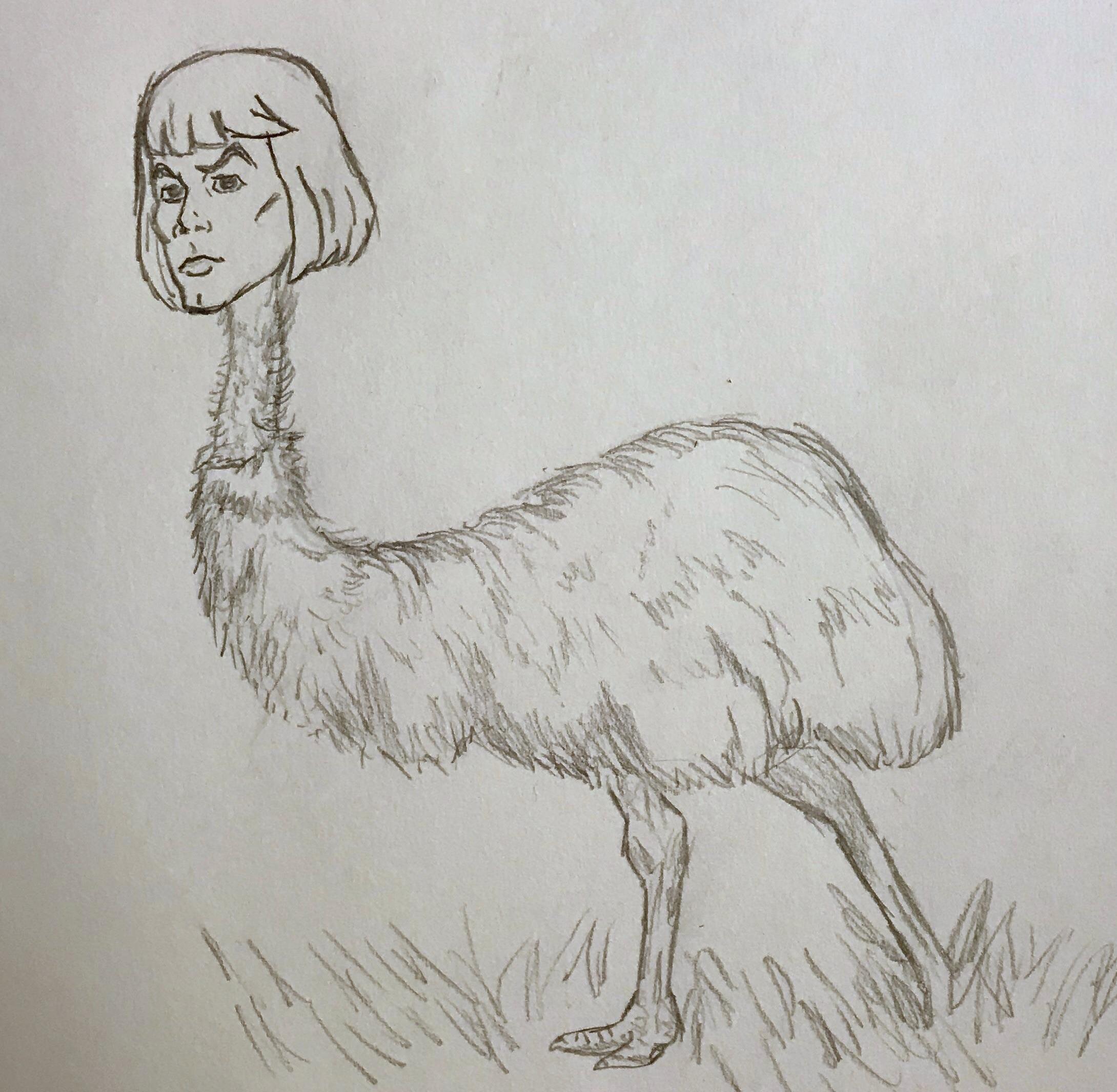Mentor, writers’ circle or uni course? Our 2021 Slinkies judge, Deniz Agraz shares her thoughts on the various options for emerging writers. As well as a potted history of her own writing career to date, beginning at the age of seven.
I was seven years old when I wrote my first short story. It was a fairy tale about an ugly girl with a heart of gold. Long story short, she finds an injured bird in the forest, brings it home and just as in every other fairy tale, the bird turns into a prince who had been cursed by a vengeful witch. They fall in love, get married and live happily ever after. After writing that story, I began to dream of becoming a writer and it took me 27 years to act upon that dream.
Writing is tough since it cripples you with self-doubt. You wonder if anyone will ever care to read your work or it will resonate with them. You push yourself to type but whatever you put on the paper sounds silly when you read it out loud. Rejection letters from the journals, writing competitions and residency programs wait in your inbox unopened. Eventually, you lose your motivation and the story you have always wanted to publish ends up becoming something you confide to a stranger at a pub after a few beers.
I have gone through each one of these phases and still do whenever I start writing a new piece. Yet, there are a few different ways to go if you are an emerging writer and feel like you need to up your game. In this piece, I want to discuss what they are with their pros and cons.
Doing a degree in creative writing: This year I reluctantly enrolled in a Master’s course in creative writing at UTS, thinking that I would drop out within a week and here I am still going strong after 2 semesters. Studying writing at a university can help you on so many levels.
First of all, it stops you from procrastinating since you have no other choice but to write! You are not only working towards your assignments, but also expected to bring in a piece of writing each week to be workshopped in class. I used to believe that I would write only when I felt like it. Turns out that I was wrong. Writing is something that one must practice regularly, if not every day.
Another great thing about studying creative writing is that it pushes you to read writers you would never bother to read, write about topics that you never thought of writing or trial with various styles! Had it not been for my creative non-fiction course, I would have never discovered Wayne Koestenbaum’s essay titled “my 1980’s”. I enjoyed the piece so much that I ended up writing my own version named ‘2000’s immigrant’.
Unfortunately, due to covid-19, I had to bear the pain of attending Zoom classes. Giving and receiving feedback on people’s work can be awkward at times and doing it online does not make it easier. Also, be prepared for confrontation during workshops as there will be many disagreements between you, your classmates and perhaps your lecturer. This also not a good option for those who don’t want to step outside their comfort zone since you will have to end up writing something other than you normally would.
Working with a mentor: Last year I did the Advanced Short Story Clinic with Dr Roanna Gonsalves through Writers Victoria. It was a workshop programme offered online and only a limited number of people could join. Every few weeks, I would upload a short piece that I was working on, to be edited and commented on by Dr Gonsalves.
Had it not been so expensive, I would probably re-join this workshop or hire a one-on-one mentor regularly. Working with a professional writer really does help you with all aspects of your craft and hone those skills.
Joining a writers-circle: Working with other like-minded emerging writers is possibly the cheapest and the most exciting option available to you.
In early 2019, I was selected to participate in the Citizen Writes program organised by Carnival of the Bold and Diversity Arts Australia. Like me, there were nine other emerging writers from ethnically and culturally diverse backgrounds in this program where we developed and workshopped stories. Working together was so fun and enriching that even after the program ended, the Citizen Writes participants decided to stick together. For the last year and a half, we have been holding regular meetings where we workshop our stories, discuss books and share information on literary events.
The only downside of this group is the amount of food I end up eating during each meeting.
Regardless of whichever option you decide to go with, it is important to remember that writing and getting published is a long journey. Every professional writer that I have spoken to has told me that they were rejected numerous times before they got published. So, don’t feel disheartened or stop trying after your first rejection. Patience and hard work will eventually help you to reach your destination.
To find out more about the 2021 Slinkies call out, click here. Emerging and established writers are also invited to submit to the 2021 Carmel Bird Digital Literary Award judged this year by Dr Roanna Gonsalves. For more info, click here.
 Deniz Agraz is a bilingual writer, a former ESL teacher and an ailurophile based in Sydney. Having arrived in Australia from Turkey as a teenager in the late 90s, Deniz’s writing regularly draws on the experiences of migrants. In 2019, her short story ‘Rosewater’ was shortlisted for the Deborah Cass Writing Prize. The same year, she was selected to participate in the Citizen Writes Project led by Roanna Gonsalves. Deniz finds that writing fiction is a way for her to reach reconciliation between her first and second languages and negotiate her place in Australian society. She is currently studying Master of Arts in Creative Writing at UTS. Her work has appeared in ABC Life and SBS Voices.
Deniz Agraz is a bilingual writer, a former ESL teacher and an ailurophile based in Sydney. Having arrived in Australia from Turkey as a teenager in the late 90s, Deniz’s writing regularly draws on the experiences of migrants. In 2019, her short story ‘Rosewater’ was shortlisted for the Deborah Cass Writing Prize. The same year, she was selected to participate in the Citizen Writes Project led by Roanna Gonsalves. Deniz finds that writing fiction is a way for her to reach reconciliation between her first and second languages and negotiate her place in Australian society. She is currently studying Master of Arts in Creative Writing at UTS. Her work has appeared in ABC Life and SBS Voices.
Blogpost image info: ‘Hemu’ by PancakeParty98, Reddit

